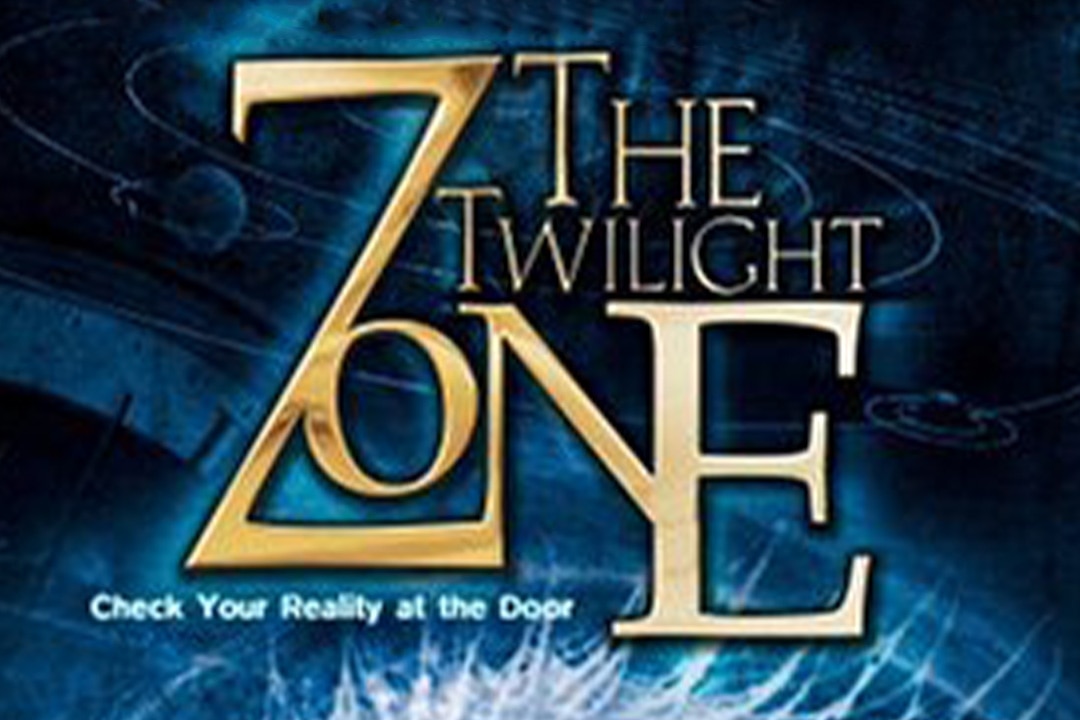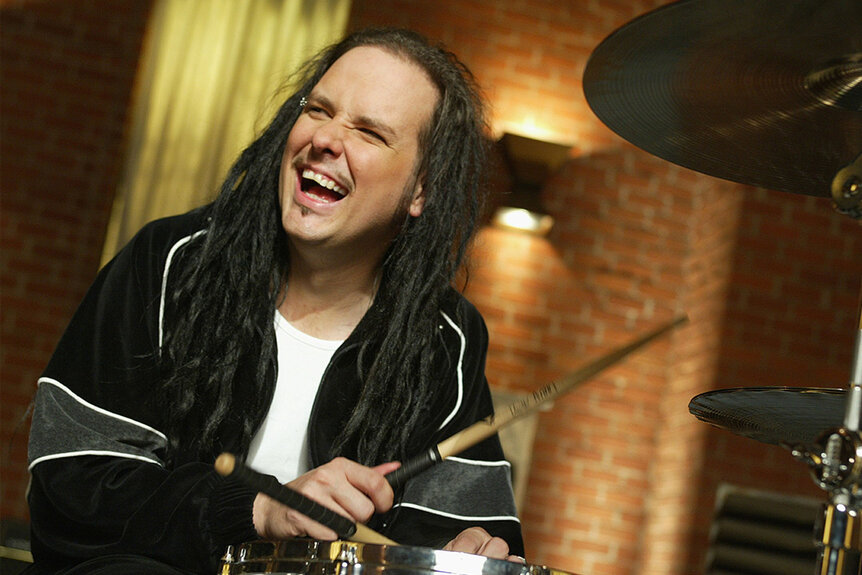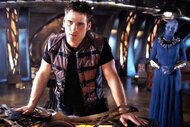Create a free profile to get unlimited access to exclusive videos, sweepstakes, and more!
‘The Twilight Zone’ 20 years later: Remembering UPN’s 2002 revival in all its millennial glory
No, we're not kidding - Korn really did perform the theme song.

Call it a guilty pleasure, but there’s just something fun and kind of comforting about bygone TV shows that feel like the products of their times. By that standard, few shows fit the description like the short-lived 2002 revival of The Twilight Zone — an earnest reboot of the classic anthology that, let’s face it, remains the runt of the small-screen litter for anyone who’s tracked the series all the way back to its iconic 1950s roots.
With its gnarly Nu-metal intro theme and a rotating guest cast of stars firmly grounded in the Seinfeld decade, the post-millennial anthology may be the version of the show that fans still love to tease…but in hindsight, it’s hard to look away from a show that featured Forest Whitaker in Rod Serling’s hosting role, while forging a strangely nostalgic bridge between the1959–1964 original series and the growing, early 2000s appetite for fresh-feeling science fiction content on the small screen.
RELATED: Everything you need to know about SYFY's 2022 Twilight Zone New Year's Eve marathon
The start of the new year means SYFY is once again embarking on its annual marathon of the original Serling-created The Twilight Zone series (plus new episodes this year from the Jordan Peele-hosted 2019 revival). That means there’s no time like the present to take a quick, dimension-hopping dive into some of the long-departed UPN anthology's quirkiest, least-known, and downright forgotten facts.
Join us, if you dare, as we open the door on the fifth dimension…early-2000s-style.
It picked up where the original left off
Though it only ran for one season before being promptly canceled, The Twilight Zone of 20 years ago hewed close to the original series’ time-honored anthology format. Each hour-long episode came bundled as a pair of separate, 30-minute vignettes, totaling more than 40 freaky standalone scenarios by the time the UPN network shuttered the series for good.
That was still enough time for the 2002 revival to leap back to the past and pick up some of the story threads that the Serling-hosted show had introduced roughly 40 years before. “It's Still a Good Life” returned Bill Mumy to the same role he’d played decades earlier in the original series’ “It’s a Good Life” episode, this time as the grown-up version of demon child Anthony now raising a daughter with supernatural powers of her own. The same episode even found room to include the iconic Cloris Leachman, who returned once more to play the creepily complicated role of Anthony’s mother.
Elsewhere, the 2002 revival chose to reimagine classic episodes rather than give them a brand-new second act. For better or worse, some of the original series’ most well-remembered installments got the contemporary-overhaul treatment, including “Nick of Time” (which originally featured William Shatner as a traveler tempted by a strangely accurate fortune-telling machine), as well as “Eye of the Beholder” (which famously flipped the script on a post-op facial surgery patient’s idea of beauty).
It did try to tackle social issues…sort of
Debuting almost exactly one year after the Sept. 11, 2001 terrorist attacks, The Twilight Zone arrived at a turbulent time; one far removed from the more homogenized social conventions that framed its 1950s-vintage ancestor. Race, gender, crime, and of course terror all came under the rebooted series’ sci-fi lens, though it’s up to the audience to decide whether the series lived up to the task of delicately handling touchy topics the way, say, Quantum Leap had deftly managed in the 1980s and 1990s.
Even so, the Sept. 11 attacks were the obvious topical elephant in the room in the autumn of 2002, and The Twilight Zone at least tried to address the new intrusion of mass terror with “The Monsters Are on Maple Street” — a soft reboot of the original series’ “The Monsters Are Due on Maple Street” installment from 1960. In the original episode, a strange power surge that rocks a community is revealed to be the work of aliens. But the 2002 version replaced the E.T. threat with one that instead emanated from the government, with the U.S. Army manipulating peoples’ anxieties to see how they’d react to disruptive events that might reasonably be blamed on terrorism.
The series also worked a bit of Quentin Tarantino-style revisionist history on the Nazis, putting Katherine Heigl at the center of a wild story about traveling back in time far enough to kill the infant version of Hitler. Though Heigl’s undercover agent does deal with the moral quandary of offing an innocent baby, she eventually follows through and drowns both baby Hitler and herself. But, thanks to a crazy baby-swapping moment after the deed is done, the 19th-Century Hitler household ends up none the wiser, and the episode plays out more like an “Isn’t it ironic?” head scratcher than an epic exploration of the ethics of altering history. Hey, at least they tried.
It featured tons of famous faces
Fresh off Ghost Dog: The Way of the Samurai and long before becoming Rogue One’s Saw Gerrera, Forest Whitaker in his regular hosting gig was just the first among dozens of names that make this version of The Twilight Zone a dead ringer for a show from the early 2000s. For a series that only spanned one season, it’s pretty incredible how many well-recognized actors — both then and now — dared to tread the middle ground between light and shadow.
Think we’re joking? Never! Jason Alexander, Penn Badgley, Jason Bateman, Elizabeth Berkley, Linda Cardellini, Rory Culkin, Shannon Elizabeth, Sean Patrick Flanery, Brian Austin Green, Wayne Knight, Method Man, Lou Diamond Phillips, Jeremy Piven, Jaime Pressly, Portia de Rossi, Eriq La Salle, Michael Shanks, Jeremy Sisto, Jessica Simpson, Amber Tamblyn, Robin Tunney, Usher, Vincent Ventresca, and Alicia Witt are just some of the stars who added guest turns on The Twilight Zone to their lengthy acting résumés.
It even sounded like the 2000s
Back in 2002, no one knew that an edgy 1990s rocker like Nine Inch Nails’ Trent Reznor would someday find second-career success as an Emmy-winning soundsmith (in 2020 for HBO’s Watchmen) and Oscar-grabbing composer (in 2010 for The Social Network and again in 2020 for Soul). Nope, all we knew then was that having Korn frontman Jonathan Davis whip up The Twilight Zone’s angsty intro music just felt, well, a little weird. With an appropriately 2000s detuned thrash guitar sound and those plinking, plonking rhythms that signified his main band’s trademark grind, the Davis-created theme music definitely didn't sound out of place…but then again, it didn’t win any Primetime Emmys.




























